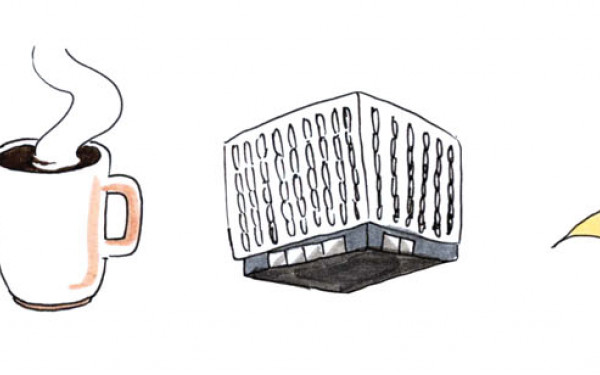Your Food, Your Money, Your Choice
A Leap Towards a Multivalent, Student-Run Food System
In light of recent discussions about fee-levy reforms, it may come as a surprise to hear that one of the three petitions handed to the Concordia Student Union had to do with an immense recognition and appreciation for the progress and potential exhibited by campus fee-levy groups.
This third petition has huge implications, and could open the door to accessing the untapped potential of fee-levy groups as student groups embedded in Concordia’s identity, capable of bringing more to the university’s community.
Specifically, this petition dealt with the numerous successful food-related fee-levy groups on campus, like the People’s Potato, the Concordia Food Coalition, Le Frigo Vert and the Concordia Greenhouse.
These groups are already remarkable campus organizations in many different ways, but from the CSU’s perspective they are untapped in a policy sense—the union could be supporting them more, allowing them to further benefit Concordia students. This is true in many ways, but I will limit this piece to the petition and the potential implications thereof.
The CSU has over $10 million in an account that has been accumulating for many years, and its purpose is primarily for student space development. Originally it was purposed exclusively for a student union building, but this has since changed slightly. The petition triggered a referendum question asking students if they support the use of a portion of these funds for the development of student-run food-system projects on campus.
In 2011, the CSU commissioned Léger Marketing to conduct a study on the use of student space, and after reading over the research it is clear that students have an interest in student-run food options. Just after a need for individual and group study space, students strongly expressed a desire for space intended for student-run food providers. This desire was then reaffirmed twice more from students: first when they voted to have the CSU actively support new student-run food service initiatives in 2013, and then again during the last byelection when students voted to fund the new campus food group, the Concordia Food Coalition.
This new policy—which should be pursued only if students vote in favor of the food system referendum question—would be a response to these trends in student feedback.
Simply put, the policy would incentivize, empower and activate student groups to seek out their own food system changes, since, if well planned, they can be confident that funds are available for these projects to be carried out.
The implications behind this referendum could be profound and could help instill a sense of community at Concordia, significantly changing the face of campus food in the short, medium, and long term. Not only should the policy seek to provide support for expansion within already existing student-run food system projects—like the fee-levy groups I’ve already mentioned—it should empower faculty associations to start their own, from scratch.
The CSU just isn’t that relevant to a lot of groups on campus, and as an umbrella organization this is one of its biggest weaknesses. The CSU needs to assume its position at the university, and open itself up to the involvement of all the campus groups, faculty associations and fee-levy associations alike. Each group adds to the Concordia community in different ways, but together they help us thrive.
It is by seeing our campus organizations as having long-term potential and investing in them that we will improve the student condition at Concordia, not by dividing the campus into its smaller parts. When there are long-standing student organizations already in place, it makes a lot more sense to develop policy that supports them than it does to develop policy that puts their existence at risk.
This is why this referendum question is seeking to open up the use of these funds for campus groups, so that they can develop in constructive ways.
If JMSB students want to create their own student-run food business in the basement or on the fourth floor of the MB, then this fund would be usable; if a student group wants to open a student-run co-operative on the mezzanine of the Hall Building, then this fund would be usable; if Loyola students want a greenhouse of their own on top of the Hive, then this fund would be usable for that.
It is through changes like these that we tap into, activate, and expand the business sense of JMSB students, as well as the existing expertise of campus groups like those working within the food system.
This proposed policy change effectively modifies the culture surrounding this large bank account of the CSU, and it changes the culture of the CSU itself in important ways. If this process can flourish it will do wonders to significantly reduce the inherent ego of the CSU.
Just because the CSU collects the money does not mean they need to control the organizations that make use of these funds—it just means the CSU needs to ensure that the use of these funds is of benefit to students and campus life.
It is through changes like these that we build a supportive Concordia community.
For more information visit http://communitymatters-csu.ca/.
Ben Prunty is the current VP Sustainability for the CSU and a candidate for CSU president.






